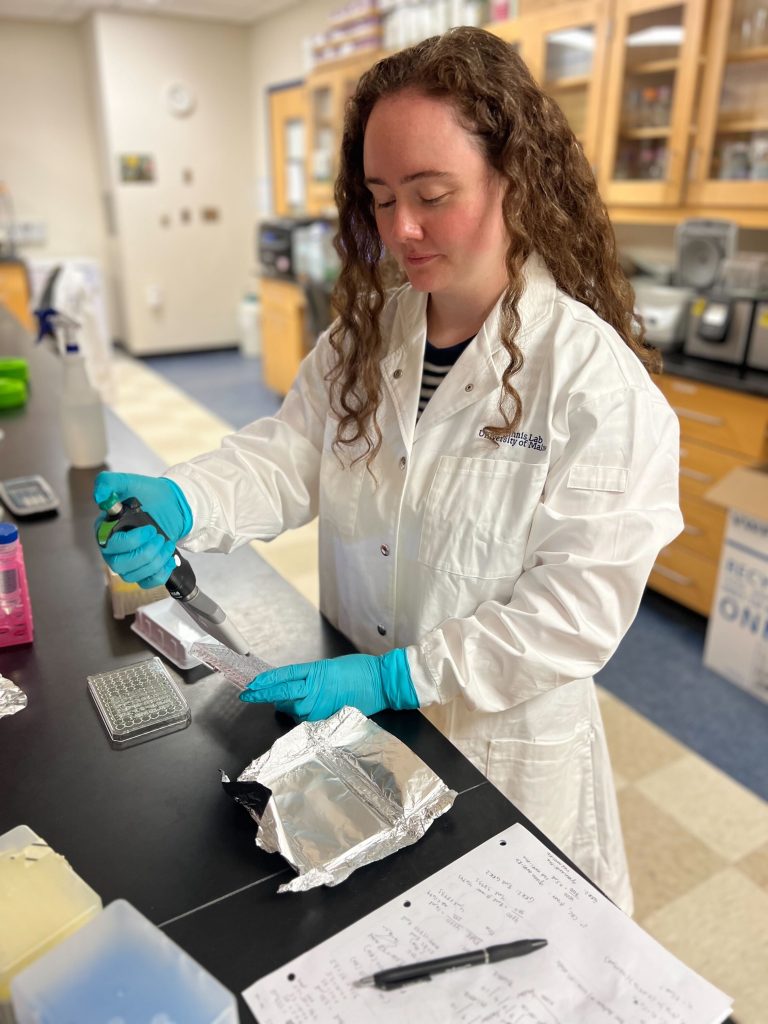Research: Uncovering Viral Mechanisms
Research in the Maginnis laboratory is focused on understanding the cellular and molecular basis of viral disease. Specifically, our work seeks to define the viral and host cell factors that regulate infection and viral pathogenesis of the human JC polyomavirus (JCPyV). The majority of the population is infected with JCPyV, which establishes a lifelong, persistent infection in the kidney without symptoms. In immunocompromised hosts, such as individuals receiving immunomodulatory therapies for autoimmune diseases or those with HIV, the virus can spread from the kidney to the central nervous system and cause a lytic infection in the brain. Viral destruction of the glial cells astrocytes and oligodendrocytes, which are critical for myelin production, results in the fatal, demyelinating disease progressive multifocal leukoencephalopathy (PML). There is currently no effective treatment for PML.
Viruses are complex, yet extremely efficient machines that hijack the host cell machinery to complete an infectious cycle and produce progeny virus. The interplay between JCPyV and host cell factors is critical to understanding disease outcomes and PML pathogenesis. Research in my laboratory is focused on understanding the detailed molecular interactions between the virus and host cell factors that drive the early steps in the infectious cycle including entry, trafficking, and viral transcription. In particular, we are focused on defining how JCPyV uses the serotonin receptor to transverse the plasma membrane, identifying signaling cascades that drive viral transcription, and elucidating how the virus causes persistent and lytic infections. This research will allow us to define key unanswered questions in JCPyV biology, provide crucial insights into JCPyV pathogenesis, and identify novel targets for rational drug design for prevention and treatment of PML.

